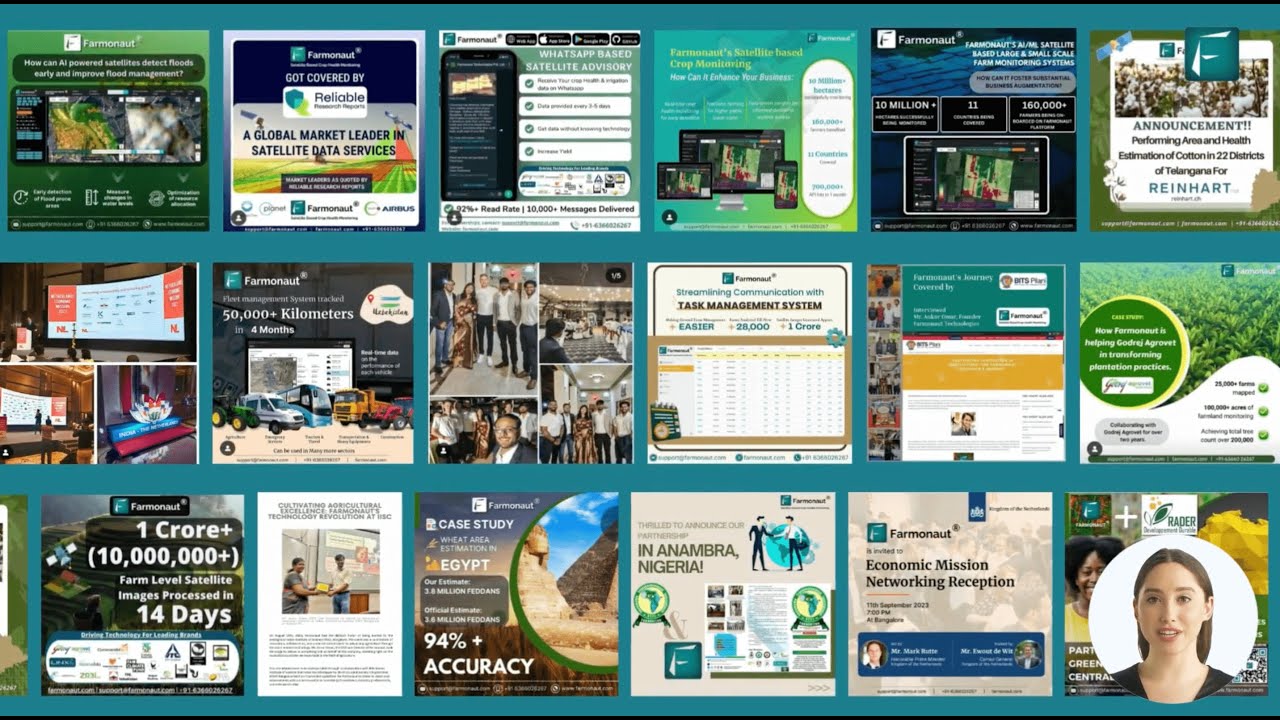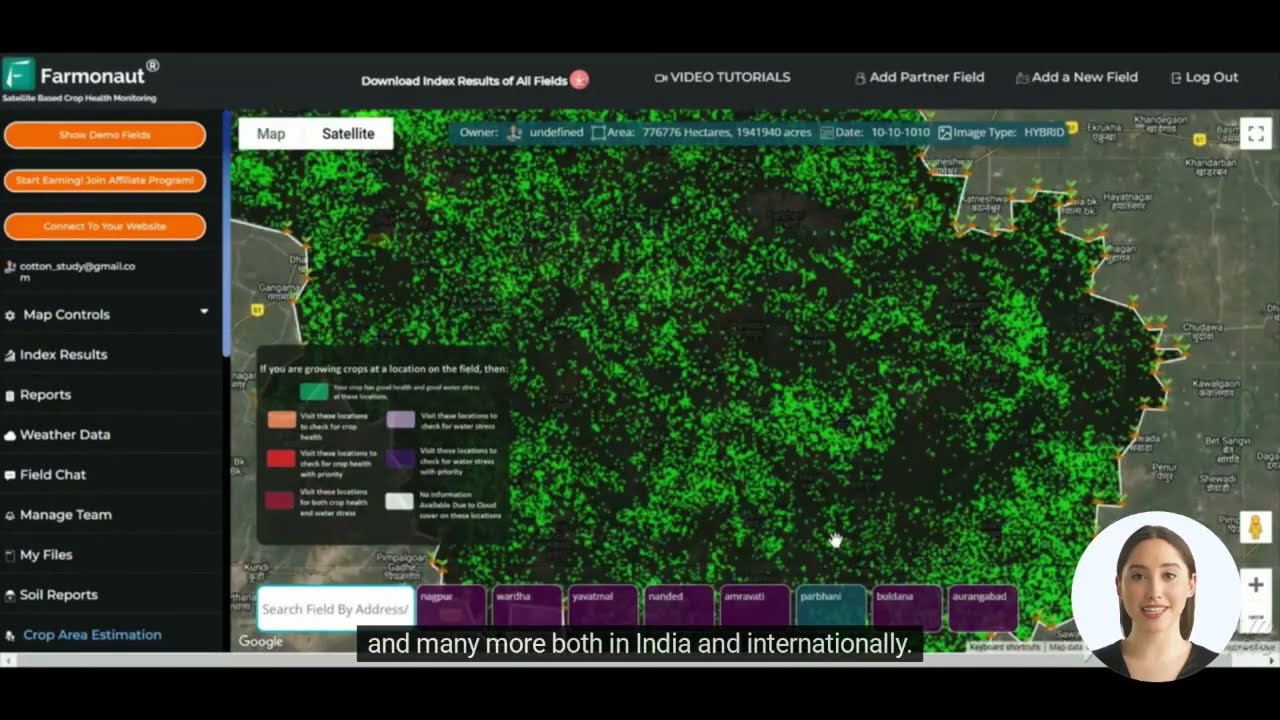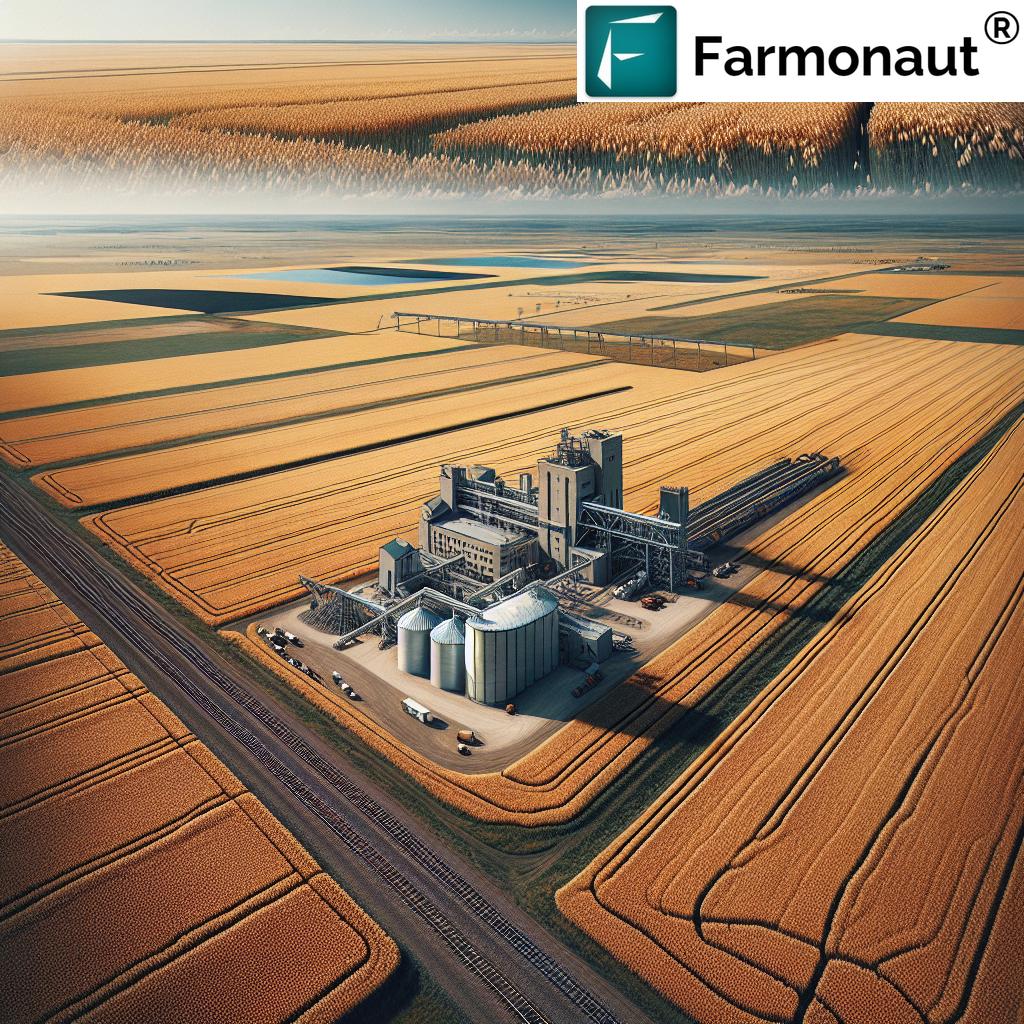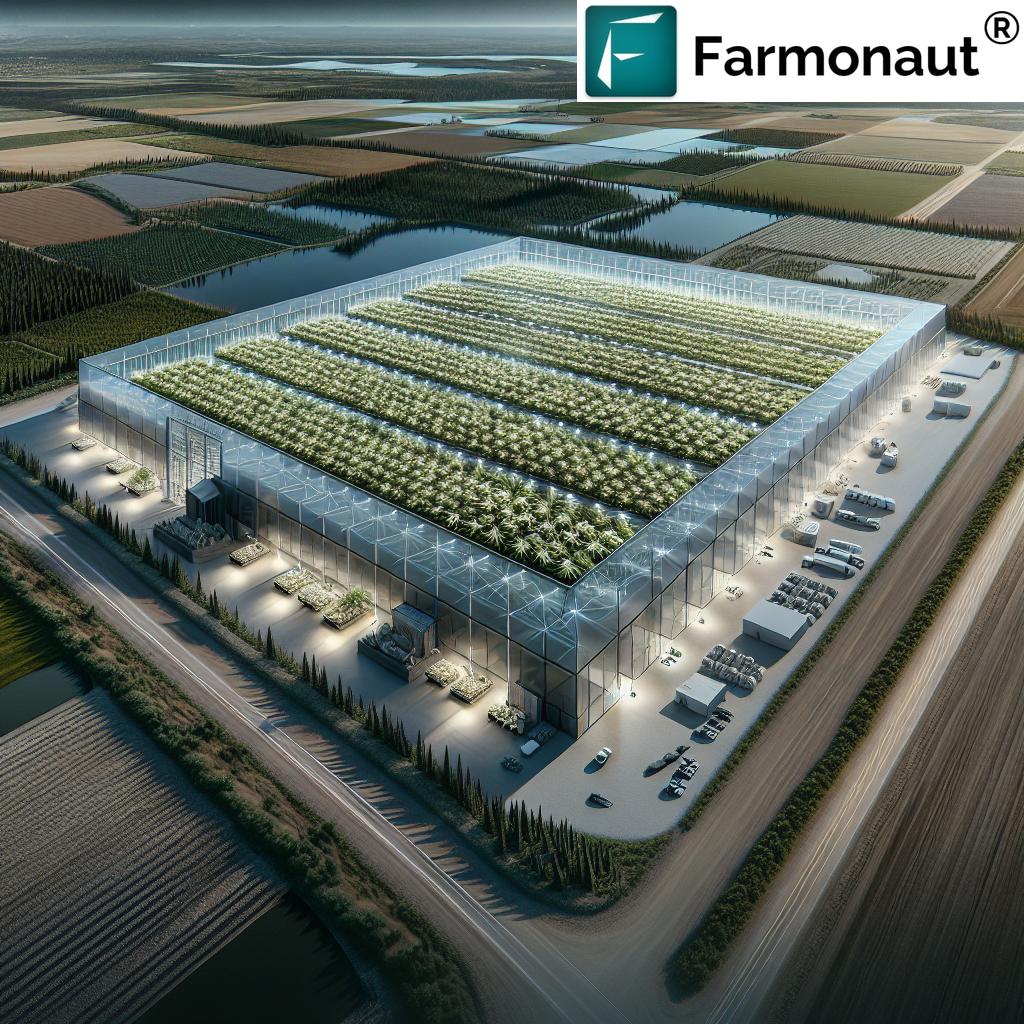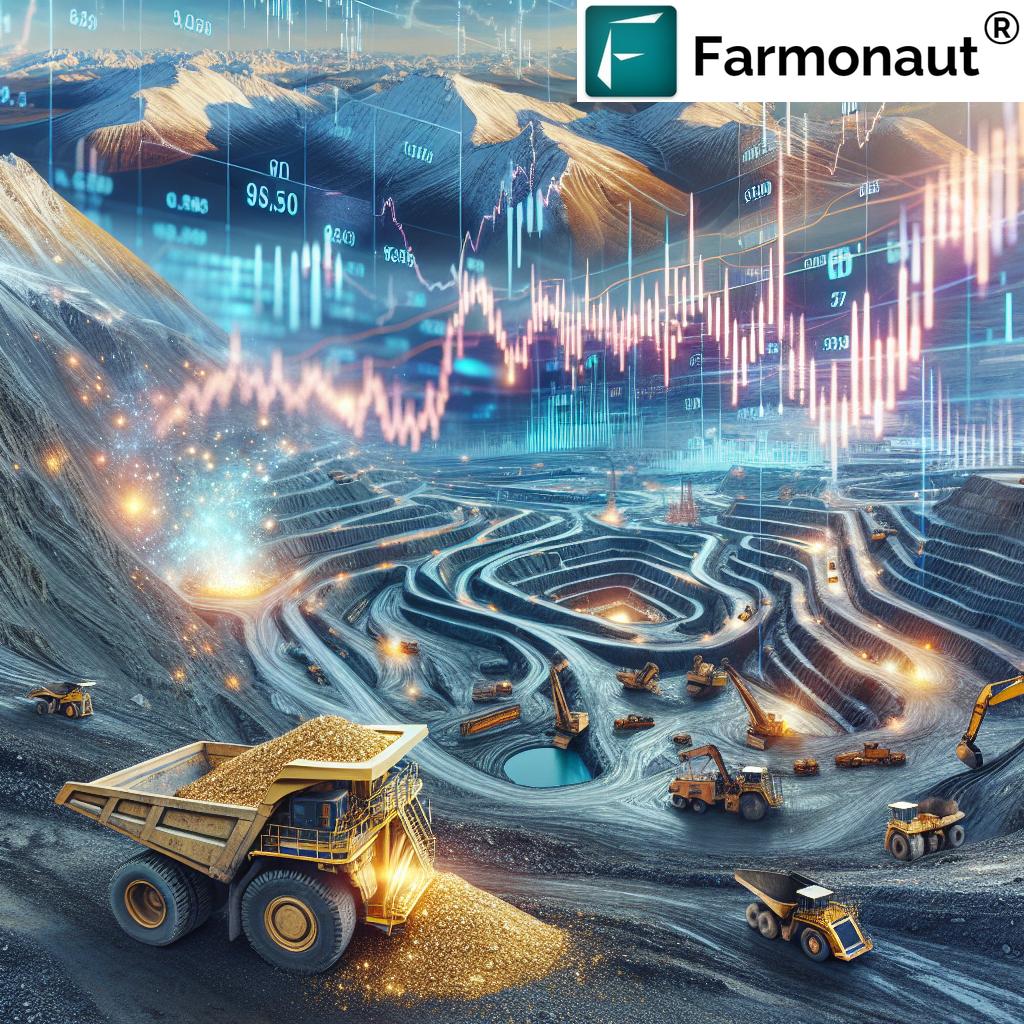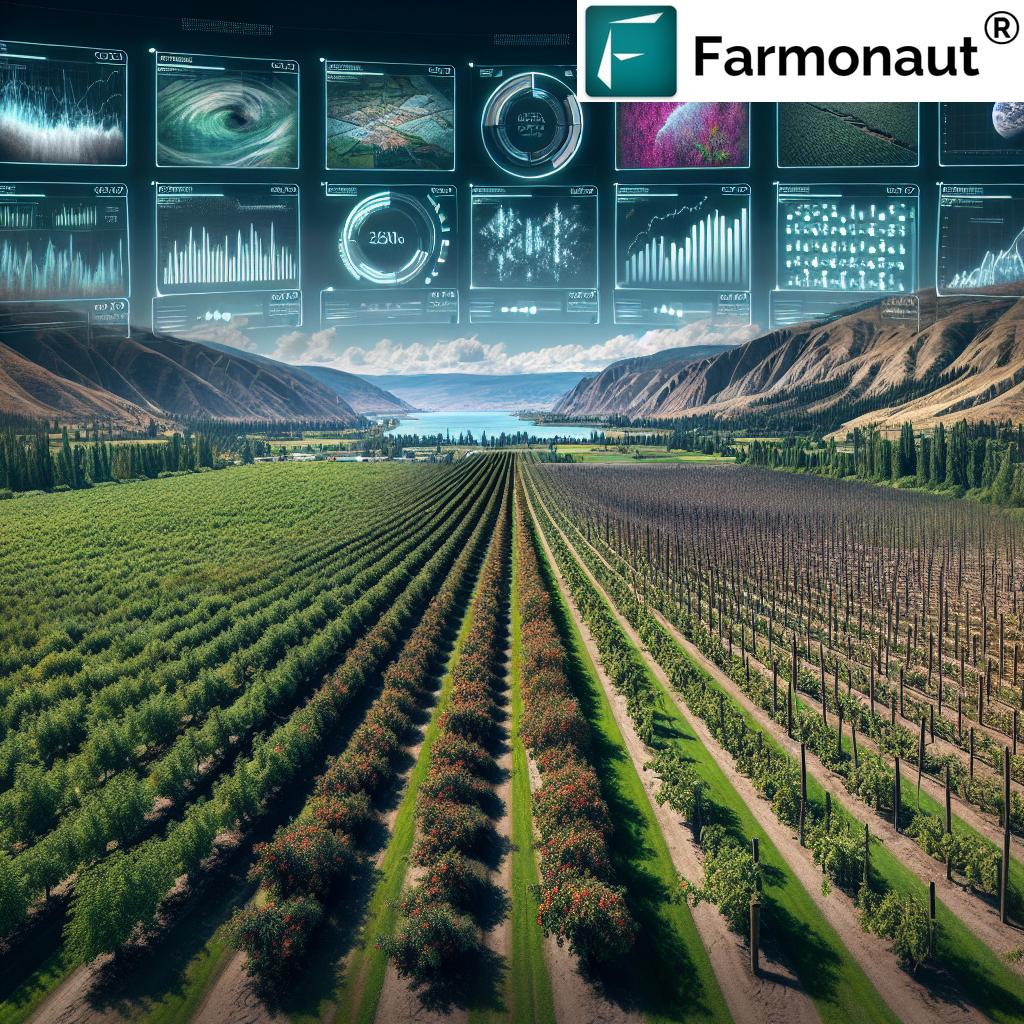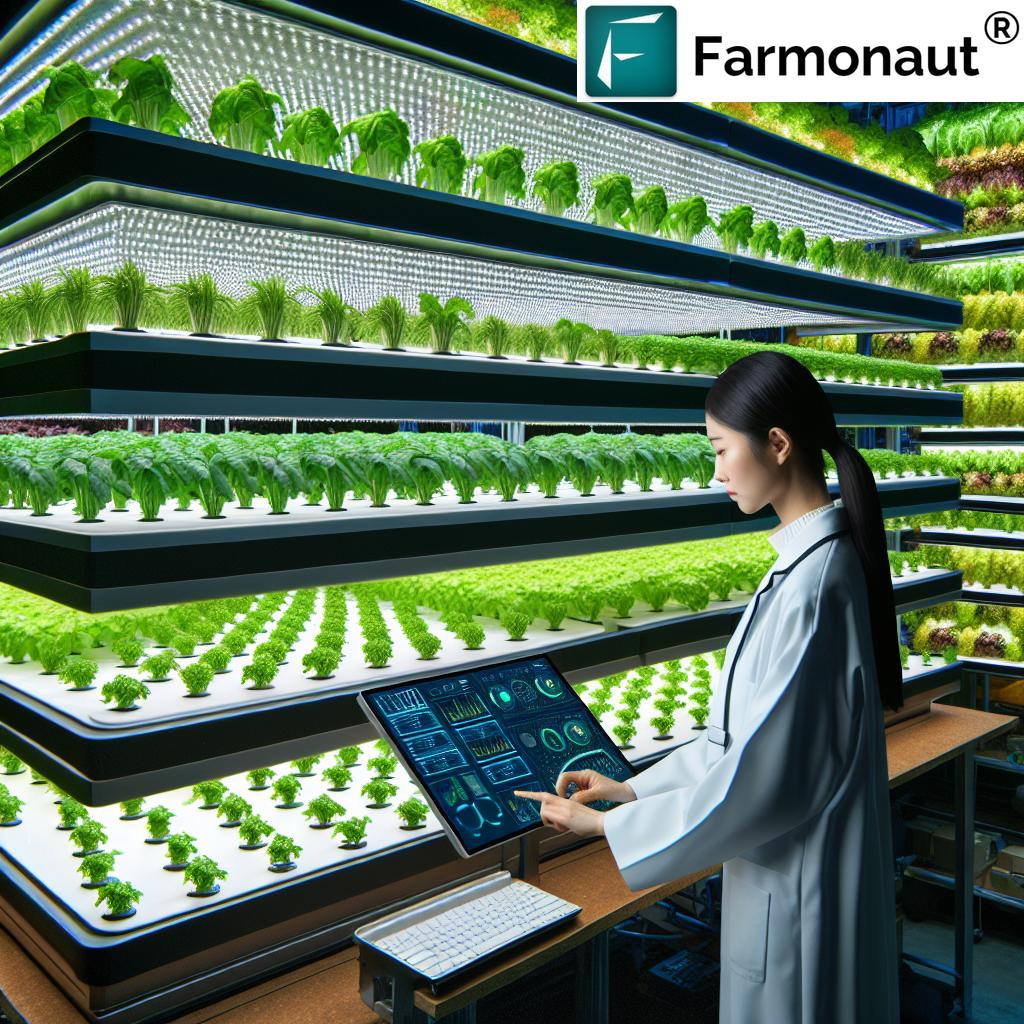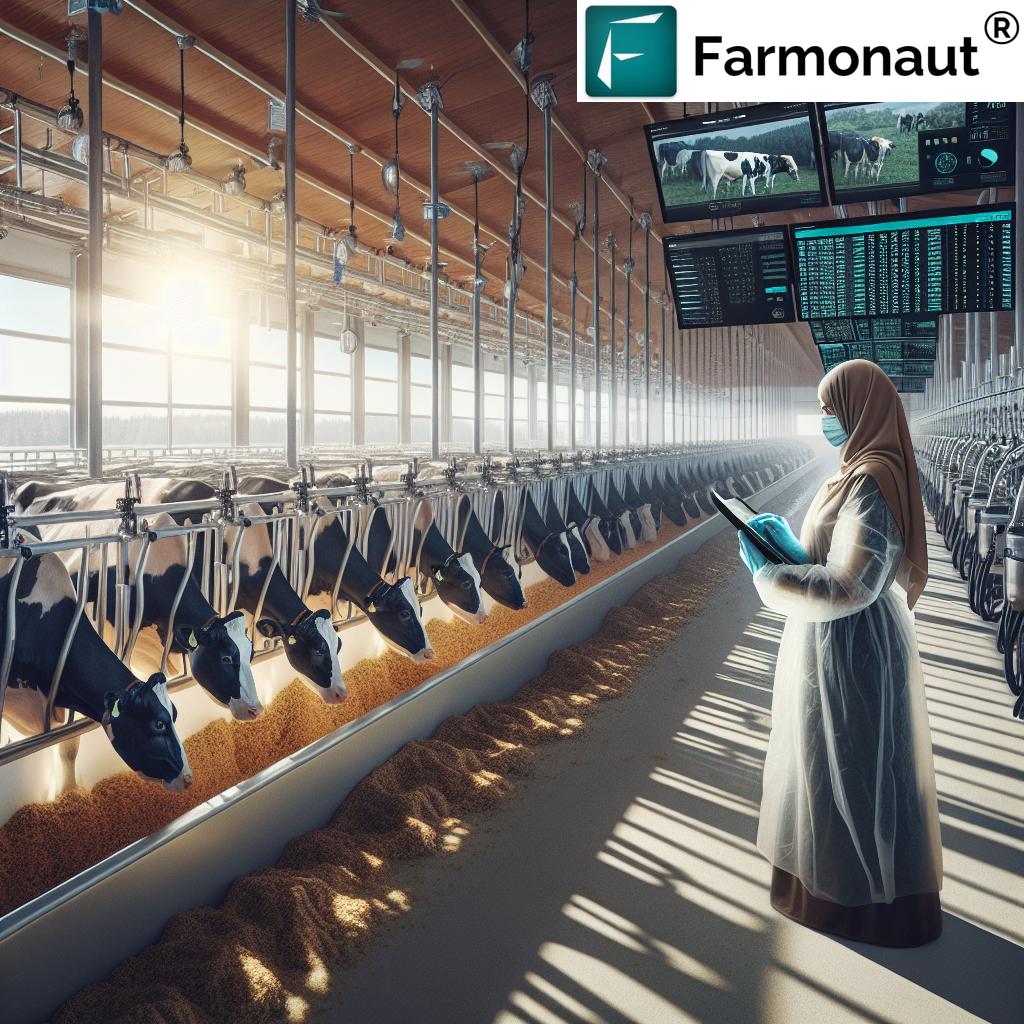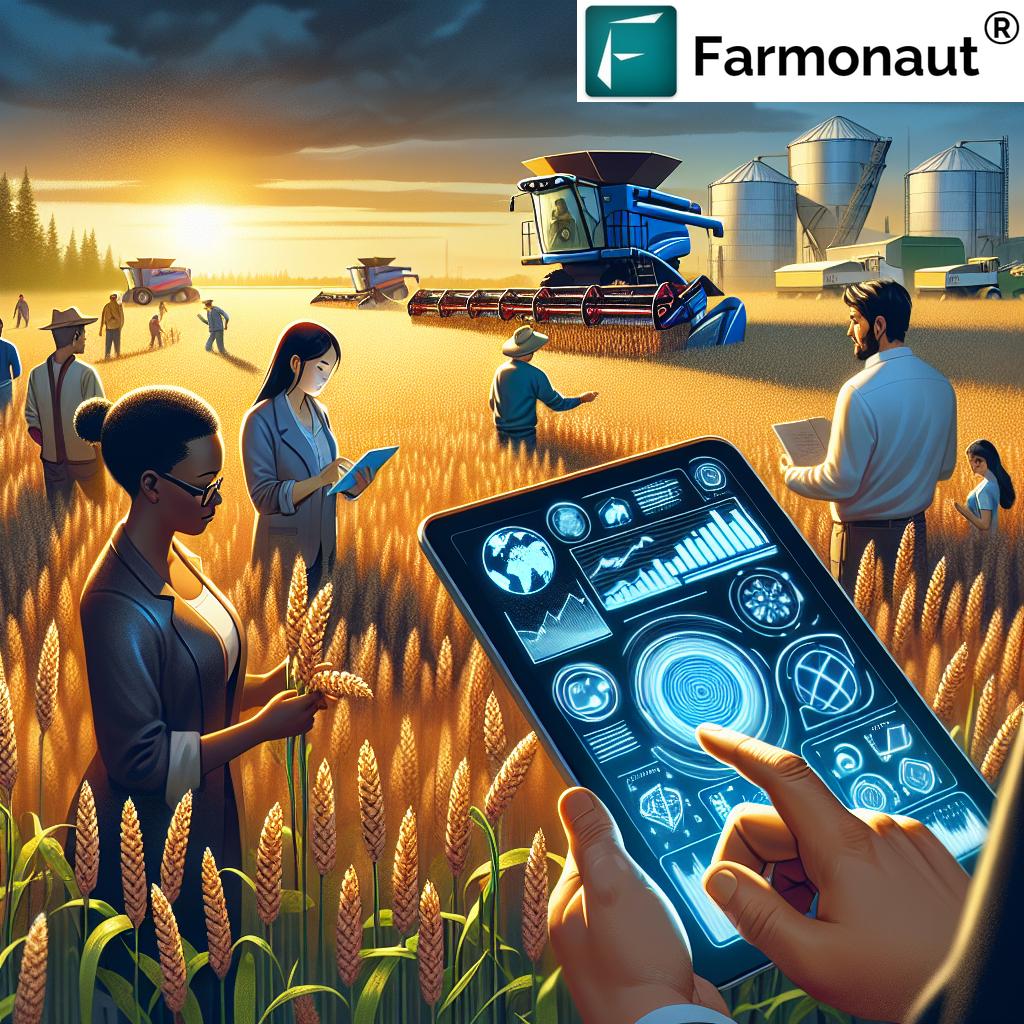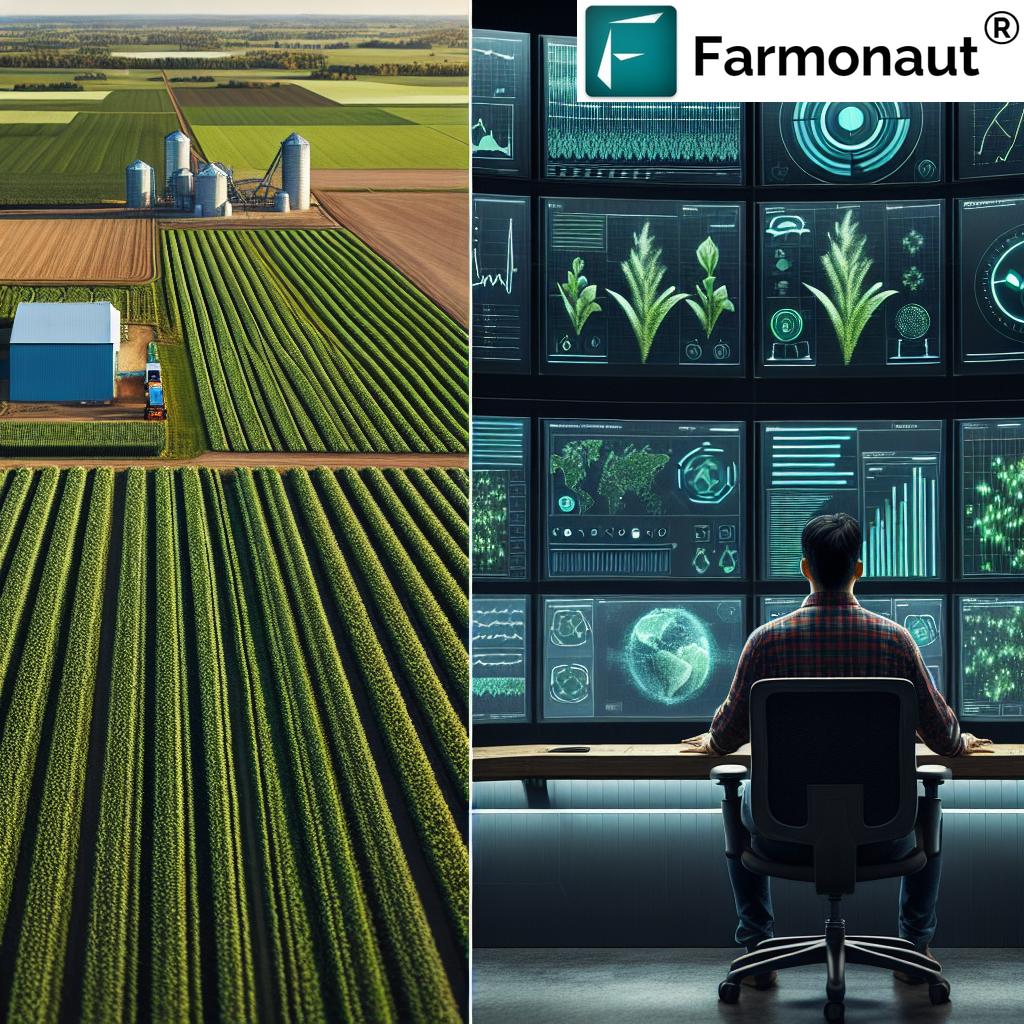Global Food Prices Surge: Ontario Farmers Face Decade-High Costs Amidst Cereal Harvest Challenges
“Global food prices hit a decade-high peak in October 2021, marking the third consecutive month of surge.”
In recent months, the world has witnessed a significant upheaval in global food prices, with the agricultural sector facing unprecedented challenges. As we delve into this critical issue, we’ll explore the factors driving these price surges, their impact on farmers and consumers alike, and potential solutions to navigate this complex landscape.
The Perfect Storm: Understanding the Surge in Global Food Prices
October 2021 marked a pivotal moment in the agricultural market trends, as global food prices reached their highest level in a decade. This surge, reported by the United Nations’ Food and Agriculture Organization (FAO), represents the third straight month of increases, painting a concerning picture for food security worldwide.
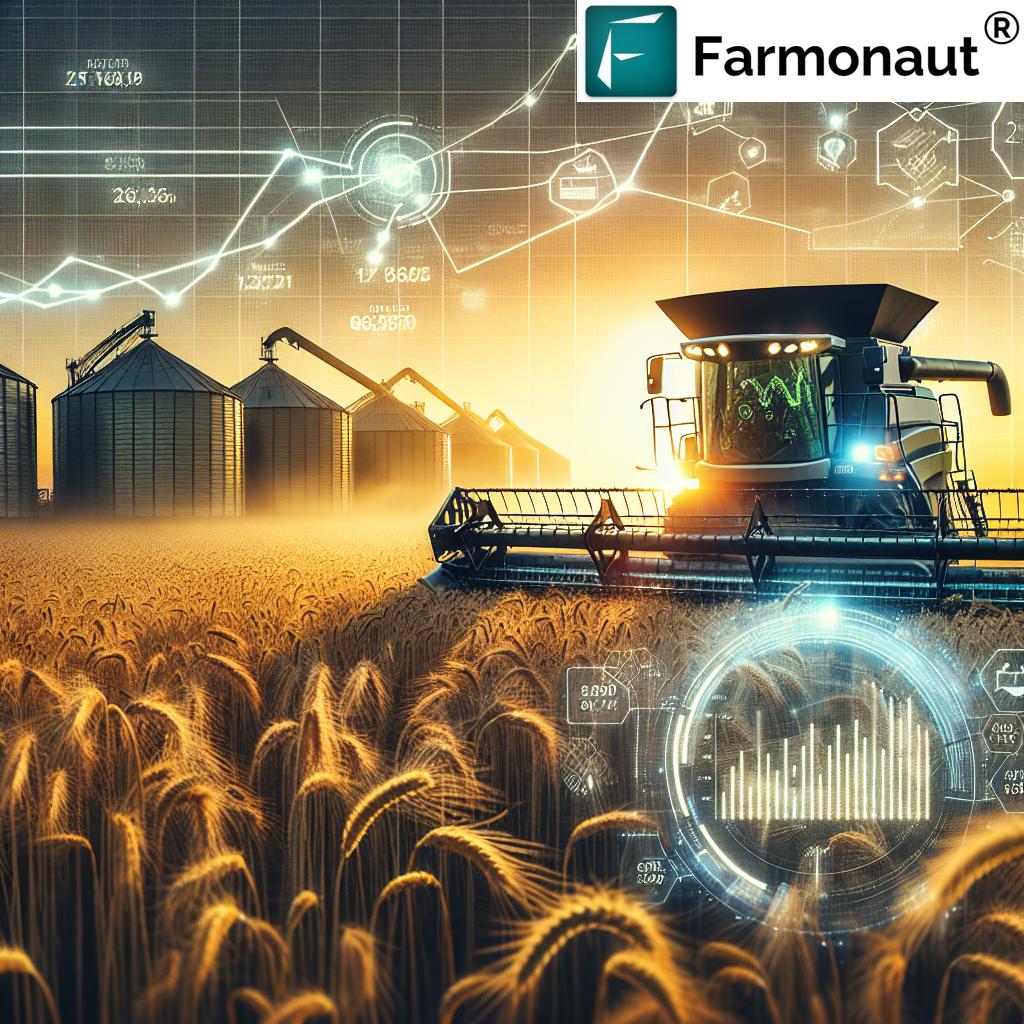
Several factors have contributed to this perfect storm of rising prices:
- Weather Impacts on Agriculture: Extreme weather events, including droughts and floods in major agricultural regions, have significantly reduced crop yields.
- Supply Chain Disruptions: The ongoing global pandemic has caused logistical challenges, affecting the transportation and distribution of agricultural products.
- Increased Demand: As economies recover from pandemic-induced slowdowns, there’s been a surge in demand for various food products.
- Rising Input Costs: Farmers are grappling with increased prices for essential inputs such as fertilizers and fuel.
The Cereal Price Index: A Key Indicator of Global Food Security
One of the most significant components of this price surge is the rise in the cereal price index. Wheat, in particular, has seen substantial price increases due to reduced harvests in major exporting countries such as Canada, the Russian Federation, and the United States of America.
To illustrate the severity of this situation, let’s examine the Global Cereal Price Index over the past decade:
| Year | Cereal Price Index | Percentage Change from Previous Year |
|---|---|---|
| 2012 | 213.3 | – |
| 2013 | 219.3 | +2.8% |
| 2014 | 192.9 | -12.0% |
| 2015 | 162.4 | -15.8% |
| 2016 | 146.9 | -9.5% |
| 2017 | 151.6 | +3.2% |
| 2018 | 165.3 | +9.0% |
| 2019 | 164.3 | -0.6% |
| 2020 | 165.3 | +0.6% |
| 2021 | 235.7 | +42.6% |
This table clearly illustrates the dramatic increase in cereal prices, with 2021 showing an unprecedented 42.6% rise from the previous year. Such a significant jump has far-reaching implications for global food security and sustainable food systems.
Impact on Ontario Farmers: A Case Study in Agricultural Economic Pressures
The effects of these global trends are acutely felt by farmers in Ontario, Canada. As one of the major agricultural regions in North America, Ontario’s farmers are facing a unique set of challenges:
- Rising Input Costs: The cost of farm equipment, fertilizers, and other essential inputs has skyrocketed, putting pressure on profit margins.
- Weather Volatility: Unpredictable weather patterns have made crop planning and management increasingly difficult.
- Market Uncertainty: Fluctuating global prices and demand create a challenging environment for long-term planning and investment.
These factors combined have led to a situation where many Ontario farmers are experiencing their highest operational costs in a decade, significantly impacting their business sustainability.
Navigating the Crisis: Innovative Solutions and Strategies
In the face of these challenges, the agricultural sector is turning to innovative solutions to mitigate risks and improve efficiency. One of the most promising avenues is the adoption of precision farming technologies.
Farmonaut, a pioneering agricultural technology company, offers advanced satellite-based farm management solutions that can help farmers navigate these turbulent times. By leveraging cutting-edge technology, Farmonaut provides valuable tools for:
- Crop Health Monitoring: Real-time satellite imagery helps farmers identify issues early and optimize resource allocation.
- AI-Driven Advisory: Personalized recommendations based on data analysis can improve decision-making and yield outcomes.
- Resource Management: Efficient management of water, fertilizers, and other inputs can help reduce costs and improve sustainability.
“The cereal price index, particularly wheat, rose significantly due to reduced harvests in major exporting countries.”
Enhancing Food Supply Chain Management
Another critical aspect of addressing the current crisis is improving food supply chain management. The pandemic has exposed vulnerabilities in global supply chains, highlighting the need for more resilient and flexible systems.
Farmonaut’s blockchain-based traceability solutions offer a promising approach to enhance transparency and efficiency in agricultural supply chains. By providing a secure and transparent record of a product’s journey from farm to consumer, these technologies can help:
- Reduce fraud and improve food safety
- Enhance consumer trust in food products
- Optimize logistics and reduce waste in the supply chain
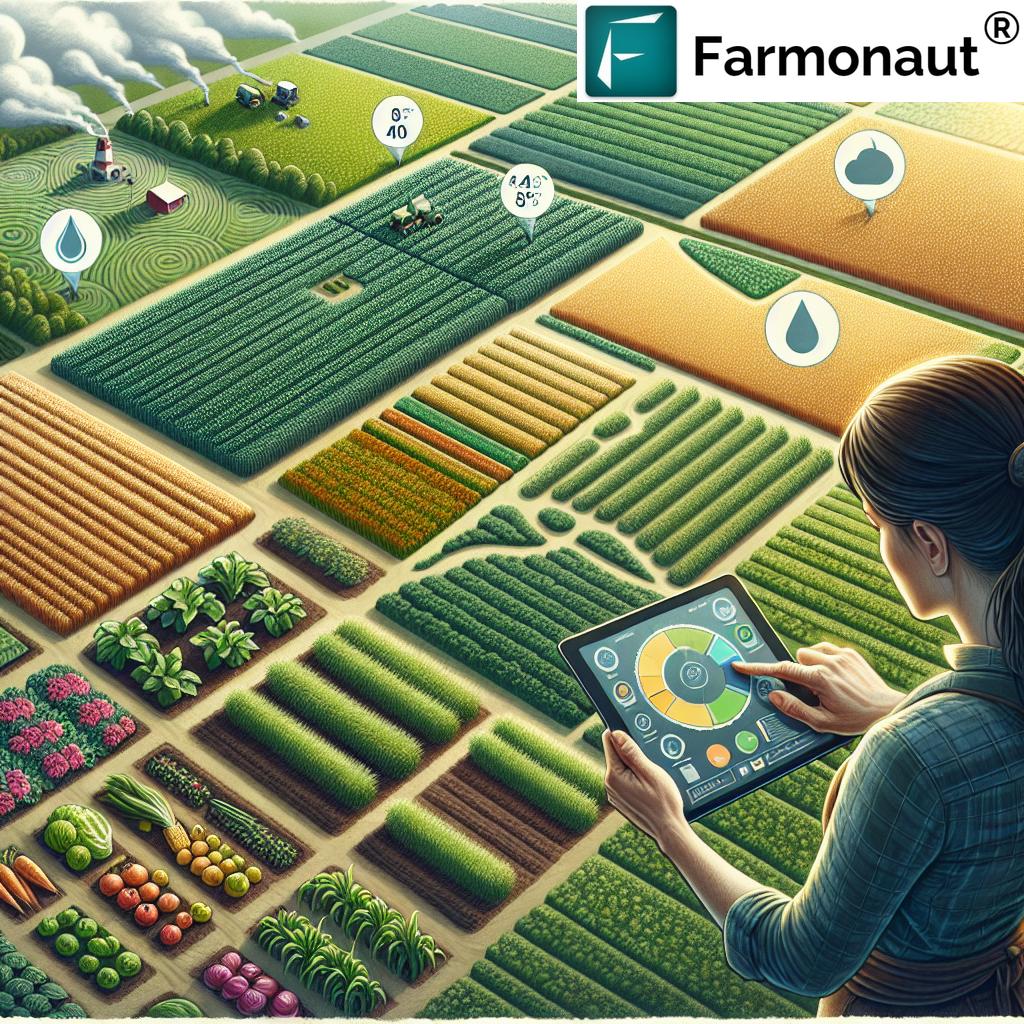
The Role of Technology in Crop Harvest Forecasting
Crop harvest forecasting is becoming increasingly crucial in an era of climate uncertainty and market volatility. Advanced technologies, such as those offered by Farmonaut, can provide more accurate and timely forecasts, helping farmers and policymakers make informed decisions.
Key benefits of improved crop harvest forecasting include:
- Better planning for storage and transportation needs
- More accurate pricing strategies for farmers and buyers
- Improved food security through better allocation of resources
Addressing Food Security Solutions in a Changing Climate
As we grapple with the current crisis, it’s crucial to consider long-term food security solutions that can withstand the challenges posed by climate change. Some key strategies include:
- Diversification of Crops: Encouraging farmers to grow a variety of crops can help mitigate risks associated with market fluctuations and climate impacts.
- Investment in Research: Developing climate-resistant crop varieties and sustainable farming practices is essential for long-term food security.
- Adoption of Smart Farming Techniques: Technologies like those provided by Farmonaut can help farmers optimize resource use and improve yields even in challenging conditions.
By implementing these strategies and leveraging advanced technologies, we can work towards more resilient and sustainable food systems that can withstand future shocks and ensure food security for growing populations.
The Future of Agriculture: Balancing Technology and Tradition
As we look to the future, it’s clear that the agricultural sector must evolve to meet the challenges of the 21st century. This evolution will require a careful balance between embracing new technologies and preserving traditional farming knowledge.
Farmonaut’s approach exemplifies this balance, offering cutting-edge solutions while respecting the expertise of farmers. By providing tools that enhance rather than replace traditional practices, we can create a more resilient and productive agricultural sector.
Empowering Farmers with Data-Driven Insights
One of the most significant advantages of modern agricultural technologies is the ability to provide farmers with data-driven insights. Farmonaut’s platform offers a range of tools that can help farmers make more informed decisions:
- Satellite-Based Crop Monitoring: Real-time data on crop health and growth stages
- Weather Forecasting: Accurate, localized weather predictions to aid in planning
- Soil Analysis: Detailed information on soil health and nutrient levels
By leveraging these insights, farmers can optimize their operations, reduce waste, and improve yields, even in the face of challenging market conditions.
Access Farmonaut’s innovative solutions:
The Role of Artificial Intelligence in Agriculture
Artificial Intelligence (AI) is playing an increasingly important role in addressing agricultural challenges. Farmonaut’s AI-driven advisory system, Jeevn AI, is at the forefront of this revolution, offering personalized recommendations to farmers based on a wealth of data.
Key benefits of AI in agriculture include:
- Early detection of crop diseases and pests
- Optimization of resource use, including water and fertilizers
- Improved yield predictions and harvest planning
Sustainable Farming Practices for Long-Term Food Security
As we confront the challenges of rising food prices and climate change, the importance of sustainable farming practices cannot be overstated. Farmonaut’s technologies support the implementation of these practices by providing farmers with the data and insights they need to make environmentally conscious decisions.
Some key sustainable farming practices include:
- Precision Agriculture: Using technology to apply inputs only where and when they’re needed, reducing waste and environmental impact.
- Conservation Tillage: Minimizing soil disturbance to improve soil health and reduce erosion.
- Integrated Pest Management: Using a combination of biological, cultural, and chemical methods to control pests while minimizing environmental harm.
By adopting these practices and leveraging technologies like those offered by Farmonaut, farmers can contribute to long-term food security while also protecting the environment.
Conclusion: Navigating the Future of Agriculture
The current surge in global food prices presents significant challenges for farmers, consumers, and policymakers alike. However, it also offers an opportunity to reimagine our approach to agriculture and food security. By embracing innovative technologies, sustainable practices, and data-driven decision-making, we can build a more resilient and productive agricultural sector.
Farmonaut’s suite of tools and technologies stands at the forefront of this agricultural revolution, offering farmers the insights and support they need to navigate these challenging times. As we move forward, the integration of these advanced solutions with traditional farming knowledge will be key to ensuring food security and sustainability for generations to come.
For more information on how Farmonaut can help you optimize your agricultural operations, visit our web application or download our Android or iOS apps today. Developers interested in integrating our satellite and weather data into their own systems can explore our API and refer to our API Developer Docs for more information.
Farmonaut Subscription Plans
Frequently Asked Questions
Q: How does Farmonaut help farmers deal with rising food prices?
A: Farmonaut provides advanced satellite-based farm management solutions that help farmers optimize their operations, reduce costs, and improve yields. Our tools offer real-time crop health monitoring, AI-driven advisory services, and resource management capabilities, enabling farmers to make data-driven decisions in the face of market challenges.
Q: Can Farmonaut’s technology help with crop harvest forecasting?
A: Yes, Farmonaut’s platform includes advanced crop harvest forecasting capabilities. By analyzing satellite imagery, weather data, and historical trends, our system can provide accurate yield predictions, helping farmers and stakeholders better plan for harvests and market conditions.
Q: How does Farmonaut contribute to sustainable farming practices?
A: Farmonaut promotes sustainability by enabling precision agriculture techniques. Our technology helps farmers optimize resource use, reduce waste, and implement environmentally friendly practices. Additionally, our carbon footprinting feature allows agribusinesses to monitor and reduce their environmental impact.
Q: Is Farmonaut’s technology accessible to small-scale farmers?
A: Absolutely. Farmonaut is committed to making precision agriculture affordable and accessible to farmers of all scales. Our subscription-based model and mobile apps ensure that even small-scale farmers can benefit from our advanced technological solutions.
Q: How can I start using Farmonaut’s services?
A: You can start by visiting our web application or downloading our mobile apps for Android or iOS. For developers interested in integrating our data into their systems, we offer an API with comprehensive documentation.


